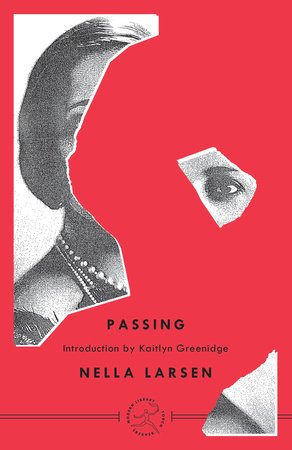Passing
Back of the Book
Irene Redfield is a Black woman living an affluent, comfortable life with her husband and children in the thriving neighborhood of Harlem in the 1920s. When she reconnects with her childhood friend Clare Kendry, who is similarly light-skinned, Irene discovers that Clare has been passing for a white woman after severing ties to her past—even hiding the truth from her racist husband.
Clare finds herself drawn to Irene’s sense of ease and security with her Black identity and longs for the community (and, increasingly, the woman) she lost. Irene is both riveted and repulsed by Clare and her dangerous secret, as Clare begins to insert herself—and her deception—into every part of Irene’s stable existence. First published in 1929, Larsen’s brilliant examination of the various ways in which we all seek to “pass,” is as timely as ever.
Why You Should Read It
Nella Larsen’s meditation on the mirroring of close female friendships and race relations in America is transcendental – beyond the scope of its time period, it resonates with modern audiences due to its gorgeous prose. Rebecca Hall’s 2020 adaptation in black and white feels like a direct homage to the writing itself, the clarity and high contrast of it. Passing follows two old friends, Irene Redfield and Clare Kendry, reconnecting as one of them discovers that the other is passing for a white woman, and married to a racist white man in 1920s Harlem. This complicate the already complex and tension filled friendship between the two women who act as warped mirrors of one another, putting into sharp relief what each is uncomfortable with and what each desires regarding their identities and their place in the world at large. As the novel approaches its unforgettable and somewhat enigmatic climax, modern readers are confronted with one of the more thorough and insightful character analyses in literary history, particularly highlighted by Larsen’s respect for her own characters’ mystery.
Memorable Passage
And yet she hadn't the air of a woman whose life had been touched by uncertainty or suffering. Pain, fear, and grief were things that left their mark on people. Even love, that exquisite torturing emotion, left its subtle traces on the countenance.
About the Author
Nella Larsen (1891–1964) was a pioneering American author and nurse, recognized for her significant contributions to literature during the Harlem Renaissance. Born in Chicago to a Danish mother and a West Indian father, Larsen's mixed-race heritage profoundly influenced her exploration of racial identity and social issues. Her acclaimed novels, Quicksand and Passing, intricately examine the complexities of racial passing and the challenges faced by African American women in early 20th-century America. Larsen's work, marked by its psychological depth and nuanced portrayals, reflects her keen observations of the societal constraints imposed on individuals by race, gender, and class. Despite facing challenges and controversies, Nella Larsen is worth knowing for her bold storytelling, her commitment to depicting the authentic experiences of Black women, and her lasting impact on discussions surrounding race and identity in American literature.
Recommended By


